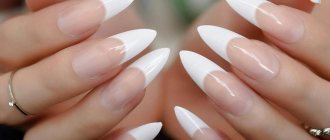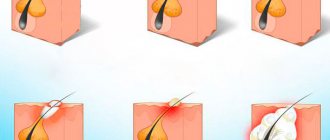January 14, 2022, 3:25 pm - Public News Service - OSN Taking care of your skin should be an integral part of your daily health regimen. After all, her condition, first of all, affects her appearance. Vitamins for the skin play an important role in this care: they ensure its healthy regeneration, maintain tone, hydration and protect against inflammatory processes.
What vitamins are useful and necessary for the skin of the face and body? Where can I get them from? Do I need to take these substances in the form of dietary supplements and how to choose them? Dermatovenereologist, dermatologist, and cosmetologist Svetlana Bondina answered these questions for the Public News Service .
Causes
Itching, redness, cracking of the surface, extremely uncomfortable sensations - any of us are familiar with this condition of the epidermis.
For some, a noticeable deterioration is associated with hormonal levels, for others - with cold weather (they often talk about an allergy to cold, although in its pure form it is rare). Only a thorough and comprehensive diagnosis will help answer the reason for the deterioration of the condition. Many patients come with the question: if the skin of the body is very dry, then what should be done? What means to choose to get rid of the problem? However, the doctor will first of all find out why it occurred.
There can be many “triggers”. Let's list some of them:
- Exposure to external factors, including sunlight, air conditioning, temperature changes, and so on.
- Age-related changes (senile xerosis).
- Lack of vitamins, including A, E and C. They are often called the “secret of youth,” although there is no secret in their action. These important components fight antioxidants, maintain the balance of the epidermis and its tone.
- The innate physiological characteristics of the body often answer the question of why the skin becomes dry. This is a so-called constitutional disorder, which is often observed in childhood, when parents of children aged 2 years and older pay attention to poor epidermis.
- Xeroderma is a pathological situation; defects are mainly visible on the face and flexor surfaces. In this condition, the permeability of the epidermal barrier is impaired.
- Allergic reactions.
- Various diseases, including fungal ones.
- Dermatoses also become a factor in the patient developing dryness, and the causes are called differently: contact and allergic, ichthyosis, psoriasis, but all of this is one class of pathologies.
Iron
The mineral is involved in providing cells with oxygen, and its deficiency provokes anemia - a condition in which weakness is felt, dry skin and brittle nails are observed. One of the typical signs of anemia is hair loss, dryness and lifelessness. It is impossible to cope with anemia without the help of a doctor, but a diet rich in iron can prevent its development. The main sources of the mineral are animal products; it is also found in red meat, beef liver, seafood, and eggs.
Fact . Contrary to popular belief, green apples and buckwheat are not the best sources of iron. Firstly, they contain significantly less mineral than meat and liver. And secondly, nutrients from meat are absorbed much better than from plant products.
Signs
It would seem that the fact that you have difficulties with the epidermis is understandable without additional explanation. However, there are a number of symptoms that are often not paid attention to, while they serve as a kind of “bell” that you need to check your health:
- after washing there is a feeling that the face, body or hands are “tight”;
- red spots appear;
- itching begins, which causes serious discomfort;
- Cracks and scratches easily form on the surface.
If you have very dry skin on your body, your doctor will tell you what to do. Unfortunately, often a simple change of cosmetics is not enough; comprehensive measures must be taken: change your diet, give up bad habits, monitor which products and materials may cause unpleasant reactions, identify medications that require caution when taken.
Vitamin E
This vitamin is also able to stop oxidative stress and qualitatively influence the structure of hairs.
“A study was conducted that proved that taking 100 mg of vitamin E in the correct form (in the form of tocopherols and tocotrienols) stops alopecia,” notes biochemist and nutritionist Anna Volkova.
In addition, the substance promotes accelerated hair growth and renewal, which is also confirmed by scientific data. Vitamin E for hair is found in fatty foods: avocados, almonds, and in small quantities in spinach. But the champions in terms of its content are sunflower seeds and unrefined sunflower oil.
Differences between dermis types
To choose the right caring cosmetics, you need to know what you are dealing with and what specific features you have. There are four types in total:
- dry;
- fat;
- combined;
- normal.
These characteristics are determined by genetics, but lifestyle, environmental factors and health play a huge role. To find out which epidermis you have, do a simple test. Clean your face with a mild cleanser, pat dry with a towel, and do not apply any cosmetic creams or serums. Assess the external shine after about an hour.
First type
After washing your face without using moisturizing ingredients, you may feel some tightness. When you blot with matting wipes, you notice that there are no traces of grease left on them. This means that you have dry skin on your body - the reasons, as we have already said, lie in genetics, but improper care and lifestyle usually aggravate the problems.
As a rule, the basis for their manifestation may be a lack of lipids; the protective layer on the surface becomes thinner and becomes permeable. Unfortunately, such features lead to the fact that with age, deeper and more pronounced wrinkles appear on the face, as the epidermis loses its plasticity and ability to replenish volume. Creases occur more easily and last longer.
Second type: normal
In the modern world, where we are influenced by dozens of unfavorable factors, it is not so easy to meet a person with this type. Even if the sebaceous glands are naturally balanced, many circumstances, including health conditions and the use of cosmetics, can disrupt the harmony. And in this case, the doctor hears the question, why is the skin on the face very dry? Normally, sebum secretion occurs evenly and there is no shine. As a rule, the pores are not enlarged, small, blood circulation is good, the complexion is even, the texture is smooth and silky, there is no inflammation or acne. The epidermis is not sensitive, but with age it usually becomes denser, easily injured, itching and peeling occur, areas whose condition causes concern. Then patients turn to a dermatologist or cosmetologist with the question of how to get rid of dryness.
Third type: fat
If, after performing a home test, you see that the cleaned surface begins to shine within an hour, and pronounced traces of grease remain on the matting paper, then you have this type. The reasons for increased sebum production, in addition to congenital characteristics, may be:
- hormonal imbalance;
- use of certain drugs;
- stress;
- cosmetics that lead to the formation of comedones, etc.
Zinc
The significance of this mineral is to restore hair tissue and control the functioning of the sebaceous glands. Zinc deficiency often manifests itself as rapid hair loss, and restoring its level reduces the severity of this process. Therefore, you need to find a place in your diet for sources of zinc: seafood, beef, nuts, lentils and spinach.
pixabay.com/piviso
Types of dryness
Problems with the epidermis are different: some suffer from constant discomfort, others develop unpleasant cracks and roughness in the cold, others complain of pockets of itching and burning. All this can be a consequence of various circumstances, including errors in choosing care, errors in nutrition and various factors that provoke allergies and dermatitis. Many women turn to their doctor with the question: very dry skin on the body - what to do? First of all, it is necessary to establish what type of problem a particular patient is:
- constitutional;
- acquired;
- pathological
Atopic dryness
This condition is also called endogenous eczema and is the result of a chronic disease that constantly recurs, accompanied by itching, rashes, and significant deterioration of the skin. The disease is not contagious, but can be inherited. Atopy is characterized by periods of exacerbation and remission, when there are no negative manifestations. However, this does not mean that the pathology has disappeared on its own; one should not relax in such a situation.
If you are worried about atopic severe dry skin of the body, the reasons are most likely a genetic disorder. The synthesis of filaggrin, a protein that is involved in the formation of a protective barrier, is imbalanced. Therefore, if parents have dermatitis, then with a high probability it will manifest itself over time in subsequent generations.
Quite often, the precursor to painful peeling is diathesis in childhood. Typically, every tenth child suffers from this disease, while among adults the disease occurs in approximately 1% of cases. Often these patients also struggle with asthma or chronic rhinitis. Allergic diseases aggravate the situation - this is already a violation of the immune system. The problem is also aggravated by climatic conditions, household pollution, frequent friction and pressure on parts of the body.
Acquired
It occurs as a result of exposure to a number of negative factors. These include:
- ultraviolet;
- temperature difference;
- ambient air conditioning, too active operation of heating radiators;
- improper care using aggressive agents;
- therapy, including the systematic use of creams containing retinoids;
- chemicals (for example, if you have dry skin on your body, the reasons may be due to production factors);
- incorrectly selected or performed cosmetic procedures.
Senile
The loss of moisture is prevented by the so-called epidermal barrier. Cells tightly adjacent to each other, epithelial cells, prevent water from evaporating. Helps maintain the integrity and reliability of this boundary, sebum, which additionally gives elasticity.
The sebaceous glands work less actively over the years, and age-related changes in metabolism lead to the following:
- atrophy and decreased elasticity of the outer integument;
- hydrobalance imbalance;
- the formation of unwanted formations, including age spots, spider veins and comedones;
- the appearance of wrinkles;
- pronounced flabbiness;
- loss of clarity of facial contours.
Vitamin A
All cells of the body need it, and strands especially. The substance helps the skin glands produce “fatty lubricant” - sebum, which moisturizes the scalp and helps keep hair healthy.
If your diet lacks sources of this nutrient, you may experience increased hair loss, but supplementing your diet with beta-carotene-rich foods can compensate for the deficiency. Among them are plant sources, for example, carrots, pumpkin, spinach. But the champions in terms of nutrient content are products of animal origin: eggs, milk, natural yogurt.
pixabay.com/congerdesign
Degrees of development
The disease can have different levels of severity. The moderate stage gives a feeling of tightness, the epidermis becomes rougher, irritated, and elasticity decreases. Very high severity leads to peeling of scales, areas of severe irritation, pimples, and itching appear on the face and body. Some areas, such as knees and elbows, tend to be particularly dry - these areas are particularly rough and may develop rough calluses.
The doctor will advise you on what exactly needs to be done - in some cases it is necessary to use not just care products, but medications. They should be prescribed exclusively by a specialist: even a pharmacist at a pharmacy does not always recommend suitable medications. An allergy that joins the irritation that torments you can lead to serious injury that will have to be treated longer and in more radical ways. The doctor will prescribe ointments that are suitable individually.
What if you don't take care of your skin?
During the day, we expose our skin to temperature changes many times. There is an icy wind with snow outside, and warm air dried by radiators indoors. The contrast can be more than 20 degrees. The consequences of such differences are:
- dryness and feeling of tightness of the skin
- rosacea – enlargement of small vessels on the face
- cold allergy – when low temperatures become an allergen, causing swelling, irritation, blisters on the skin
- exacerbation of atopic dermatitis, psoriasis, herpes
- if the frost is severe, frostbite may occur
Lack of proper care leads to loss of skin elasticity, premature aging, and the appearance of age spots. Once acquired, rosacea will forever remain a cosmetic defect, which is quite difficult to combat.
Diagnostic methods
To find out what causes very dry facial skin, how to treat dry body in women and men and find the causes, it is necessary to conduct a comprehensive examination to treat the patient, which includes:
- clinical and biochemical blood tests;
- consultation with a dermatologist and cosmetologist;
- study of hormonal status;
- allergen analysis and so on.
The full list of necessary diagnostic tests depends on the individual condition. Root causes, in particular, may be related to stress, phase of the life cycle, and so on.
Mistakes in caring for dry skin
Not everyone understands how to care for dry skin. Of course, dryness is aggravated due to sea and chlorinated water, natural factors such as wind, cold, dry air, exposure to ultraviolet radiation, as well as a deficiency of vitamins A, B, E. But some reasons are related to a person’s lifestyle. Check if you are making any mistakes:
- often go to the solarium or to the beach,
- have bad habits: alcohol, smoking, caffeine addiction,
- wash your face with hot water or take an excessively hot bath,
- do strong peelings or use cleansing masks,
- use alcohol lotions and alkaline soaps,
- limit yourself in every possible way in your diet,
- You don't moisturize your skin at all.
Proper care and a healthy lifestyle will relieve your skin of tightness, flaking and discomfort. But incorrect care for very dry skin will only worsen its condition.
Treatment
You can often hear that if you are faced with a similar problem, the most important thing is to achieve proper, deep and constant hydration. However, this is not the only recipe for getting rid of difficulties. In general terms, the line of behavior is correct, but often it is necessary to get rid of the factor that provokes the deterioration of the situation, and this is why tests are prescribed and examinations are carried out.
After diagnosis, the doctor will draw up a list of measures on what to do if your body skin is very dry. As a rule, it begins with drawing up a balanced diet and establishing a drinking regime. You should also try to avoid the influence of negative environmental phenomena: do not wash your face with hard water, avoid exposure to direct sunlight, and do not be in the wind.
It is important to remember that lifestyle changes, including quitting smoking, also have a beneficial effect on the condition of the epidermis.
If dryness is associated with disruption of any organs and systems, including endocrine and digestive, treatment is carried out by a specialized specialist in contact with a dermatologist.
What to eat for healthy hair
According to Anna Volkova, it is necessary to consume a sufficient amount of protein every day, as well as include vegetables and fruits in the diet. The main rule of a balanced diet is variety. The menu should include a variety of nutritious foods, including meat and poultry, organ meats, grains and cereals.
Equally important are the right oils, herbs, vegetables, berries and fruits. But “empty foods” without a rich nutrient composition should be avoided. Fast food and highly processed products (for example, cereals, sweets, ready-made sauces and soups, products containing margarine) will not bring any benefit to the body.
The most valuable substances for healthy strands are found in affordable, simple, unprocessed foods.
Care
Additionally, the following procedures are recommended:
- oxygen therapy;
- ozone therapy;
- magnetic therapy;
- vitamin injections;
- cell mineralization;
- laser therapy and so on.
All procedures are combined with the use of high-quality caring cosmetics recommended by a specialist. It is recommended to constantly be in touch with a dermatologist so as not to cause damage to your health. In order to detect violations in time and correct the situation, regular monitoring is needed.
Peeling hands
Many patients with a similar problem are ready to limit themselves to using a special nourishing cream. However, often this measure is not enough, especially since there are no sebaceous glands on the palms, which means that the natural protective barrier is relatively weak. So “amateur activity” in this area is undesirable. It is better to make an appointment with a dermatologist and ask how to treat dry skin on your hands.
Pay attention to factors that particularly affect the health of the epidermis:
- exposure to household chemicals and detergents;
- improper hygiene;
- frequent contact with hot water;
- influence of external factors.
What vitamins are important for improving the skin of the face and body?
Among the nutrients that play a leading role in the health of the epidermis, nine nutrients are distinguished.
Vitamin A
This organic compound is fat-soluble, meaning it is absorbed into the body only in the presence of fat. There are several forms of the nutrient.
- Beta-carotene . A precursor substance to vitamin A, it is found in this form in foods.
- Retinol, retinal, retinoic acid and esters . The most active forms of the nutrient, some of which are included in vitamin complexes for hair, nails and skin, as well as in specialized cosmetics (usually professional, medicinal cosmetics).
Retinol is one of the most important forms of vitamin for youth and beauty of the skin, as it is responsible for the renewal of epidermal cells and protects tissues from premature aging. For severe problems with the skin, preparations with retinoids are used for medicinal purposes.
Peeling on the legs
This is a fairly common disorder that affects both men and women of different ages. In addition to the reasons already listed, damage to the lower extremities is often a consequence of poor circulation in the veins of the legs - varicose veins. So, in addition to other tests, it is necessary to check the condition of the blood vessels.
Dryness in winter
The problem that occurs during the cold season is caused primarily by temperature changes (between indoors and outdoors) and dry air due to strong heating. Of course, the cold itself plays a big role, which leads to dehydration. And if you apply water-based cosmetics to your face and body, this will have a detrimental effect on your health and appearance. Most often, these are the reasons for very dry skin throughout the body in a particular season.
It is a mistake to think that you don’t need to use moisturizers in winter. With the right selection, the cream will work to improve your overall condition. Products containing shea, jojoba, and macadamia oils are recommended, as well as creams and ointments that form silicone occlusive coatings. But it is better not to use cosmetics with hyaluronic acid in cold weather.
Winter care mistakes and how to avoid them
In winter, the skin requires special attention and delicate treatment. The most common care mistakes involve using harsh products or cleansing methods. The following are contraindicated for skin in winter:
- scrubs with abrasive particles
- hot water
- "summer" cosmetics
- no UV protection
- rubbing with a towel “to warm up”
- dry makeup
In winter, you should follow a simple skin care rule: all cleansing, exfoliating procedures, as well as moisturizing, are best done in the evening, shortly before bed. Protective cream should be applied to exposed areas shortly (half an hour) before going outside.
Constant peeling
If you experience persistent discomfort, it is necessary to undergo a diagnosis because:
- it can be a consequence of various diseases, including endocrine ones;
- stable peeling occurs in places that are subject to regular mechanical stress (for example, knees and elbows);
- persistent dryness may be the result of an allergy that is not seasonal.
So the question of why the skin on the body dries so much and what to do if the epidermis continues to deteriorate should lead you to a dermatologist’s office, who will prescribe a comprehensive examination.
Prevention
There are ways to reduce the impact of environmental factors and prevent problems:
- Wear rubber gloves when constantly in contact with water and detergents.
- Avoid using household chemicals unless necessary.
- Do not overuse your face with tap water: its composition often causes peeling.
- When looking for a way to get rid of dry skin, analyze which substances may serve as allergens for you.
- Protect yourself from the effects of negative environmental factors.
- Do not overuse cosmetic procedures associated with trauma, do only gentle peelings and do not use abrasives with coarse particles. Even those that are designated as soft in the instructions can seriously scratch.
- Use care products selected individually, taking into account all the nuances of the current condition.
Proper nutrition
When choosing options for how to get rid of dry skin, pay attention to your diet. It is recommended to enrich it with vegetable oils, in particular those based on flax. It contains omega-3 fatty acids, in greater quantities than other vegetable fats, and has a beneficial effect on health. Flaxseed oil also contains many components that prevent external aging.
If we talk about other sources of omega-3 acids, then this is fish, which is also recommended to be included in the menu.
Avocado is rich in healthy fats and helps retain moisture. So, if the question arises, what to do when your skin is very dry, enrich your menu with this useful product.
The condition of the epidermis is also favorably influenced by the nutrients contained in eggs. The protein contains essential amino acids, and the yolk contains vitamins and folic acid, which, by the way, is also found in greens and green vegetables.
Care products
When patients complain of flaking and dryness, there may be different reasons. However, today there are products that are recommended in most cases to get rid of peeling and cracking.
Most often, doctors prescribe drugs with hyaluronic acid. Normally, it is found in the body and has the ability to retain water molecules. Thus, hydration of the outer integument and deeper layers of the dermis occurs naturally.
Urea, lactic acid and sodium pyrroglutamate also have a beneficial effect on the condition.
In recent years, doctors have increasingly recommended medications made from hydrolyzed human placenta to solve the problem of very dry skin. In particular, the Japanese placental drug Laennec is used to normalize her condition. This is an innovative product from the group of immunomodulators and hepatoprotectors. Its unique composition includes:
- Cytokines and peptides that provoke an immunological reaction.
- Interleukins acting as a mediator of inflammation.
- More than 36 cell growth factors.
- 18 amino acids, including essential ones, to prevent unwanted cellular oxidation and prevent the action of free radicals.
- Nucleic acids for the correction of scars, stretch marks, hyperpigmentation, acne, post-acne, combating signs of aging by chrono- and phototype.
- Glycosaminoglycans – to maintain the cellular matrix.
- About 100 protective enzymes and 40 vital minerals.
- Vitamins B1, B2, B6, B12, C, D, E.
- Hyaluronic acid to optimize water balance and moisture retention in cells.
Laennec drug and super-thin injection needles Nanoneedle
Laennec - injection solution No. 10
Curacen / Curacen
Nanoneedles with ultra-thin walls 30G
Nanoneedles with ultra-thin walls 33G
Whatever the causes of dry skin on the face and body, the use of Laennec can improve its condition and relieve negative symptoms. In particular, experience has already been gained in its successful use in the treatment of atopic dermatitis. The cytokines included in the composition activate cell metabolism and prevent the development of fibrosis. Nucleic and organic acids, nucleosides enhance protein synthesis. Vitamins provide the antioxidant and restorative effect of the drug. And the epidermal growth factor EGF stimulates the renewal and reproduction of epithelial cells, which has a beneficial effect on the general condition.
Why vitamins are needed for healthy skin
Our body needs dozens of nutrients every day. He can produce some of them on his own. For example, vitamin D is formed in our body under the influence of sunlight. Just 10-15 minutes spent in the sun daily saturates the body with a sufficient amount of this substance.
Vitamin D is one of the main vitamins that is “responsible” for the skin. But, as the largest organ of our body, it also needs other components. And our body does not know how to produce them on its own, but can only obtain them from food. If some components are not enough, the result will not take long to appear, but will literally appear on the face.
The sun helps take care of the skin (Photo: pexels.com)
When are vitamins good for the skin?
“Vitamins are unrelated organic substances that cannot be synthesized in the human body,” comments dermatologist Svetlana Bondina. “They should be supplied with food in small quantities, thereby preventing metabolic disorders.”
Vitamins play a significant role in skin care because they:
- protect it from premature aging;
- prevent tissue sagging;
- prevent early color change;
- eliminate increased dryness;
- maintain radiance, preventing dullness.
It is important for the human body that these substances are supplied daily in sufficient quantities, not small, but not large.
“A lack of vitamins necessary for the skin harms its condition, just like an excess,” says Svetlana Bondina. “And this negatively affects one’s appearance.”
Deficiency and excess are equally harmful (Photo: pexels.com)











